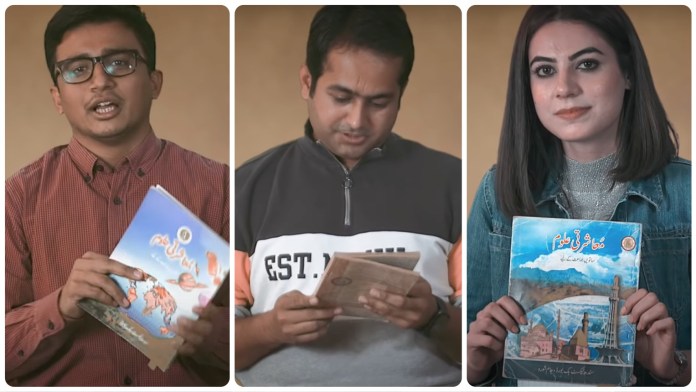Minorities in Pakistan, particularly Hindus, live in constant fear of persecution. Hindus have been implicated in fabricated blasphemy cases. Their daughters are kidnapped, forced to convert to Islam, and married off to their kidnappers.
But on Monday, BBC Urdu posted a video on YouTube revealing the underlying prejudice against Hindus that Pakistani textbooks encourage. The episode uses many other Pakistani Hindus who highlight the rampant anti-Hindu propaganda peddled by Pakistani school textbooks and recount the humiliation they endured at the hands of their friends, colleagues, and classmates simply for being Hindu.
The video also demonstrates the normalization of anti-Hindu bigotry in Pakistani government-approved school textbooks. Children are brainwashed to despise Hindus from a young age, as state-sanctioned textbooks malign them, refer to them as ‘kafirs’ (derogatory slang for non-believers), and blame them for all the ills that afflict Pakistan.
In the video, Pakistani Hindus quote various school textbooks to demonstrate how school textbooks promote hatred of Hindus and Hinduism. These young people from various fields attribute the intolerance towards Hindus in Pakistan to state textbooks that contain prejudicial content about Hindus and portray them as the source of all evils. They cited passages from the school textbooks.
One of them, Rajesh Kumar, cited a Pakistani school textbook in which Hindus were described as ‘Kafirs,’ meaning idolaters or those who worship idols, and claimed that Hindus were misogynists who buried their newborn daughters alive if they were girls.
Rajesh Kumar who is seen the video and who is talking on behal of the Pakistani Hindus cites the Sindh Text Book Board’s 11th and 12th grade books to highlight the use of epithets like “enemies of humanity” to describe Hindus and Sikhs. He goes on to say that the book claims Hindus and Sikhs murdered thousands of women, men, and children.
Others interviewed by the BBC, like Rajesh, felt that Pakistani textbooks misrepresented their faith. Dr. Rajwanti Kumar, a Hindu girl in Pakistan, claims that her classmates teased her because she was Hindu. Some of her classmates even asked her to celebrate India’s independence day on August 15, rather than August 14.
The books in Pakistan tend to promote the narrative that the country’s Hindu minorities are loyal to their neighboring and arch-enemy India. As a result, Muslim students develop the impression that Hindus in their country are traitors who have no patriotic feelings for Pakistan.
Dr. Kumar used 9th and 10th grade books to demonstrate how Pakistani books portray Hindus as treacherous and deceitful. According to her, the books claim that Muslims and Hindus banded together to fight the oppressive British regime. The association, however, could not last long due to Hindus’ incessant hostility toward Muslims.
According to AH Nayyar, a well-known Pakistani educationist, hatred against Hindus is couched in subtle ways in Pakistani books. He explains that in Pakistani history classes, the conflict between the Muslim League and the Congress is portrayed as a clash between Muslims and Hindus.
In some ways, Hindus are portrayed as villains in Pakistani textbooks, according to Nayyar, in order to justify the establishment of Pakistan and the politics that surround it.
He brings up another critical issue in Pakistani textbooks. He claims that, while the history of Muslim rule is prominently presented in these books, no mention of Hindu history is made. For example, the subcontinent’s history begins as a result of the arrival of Muslims in the region There is no mention of previous Hindu rulers who ruled the region prior to Muslim rule.


